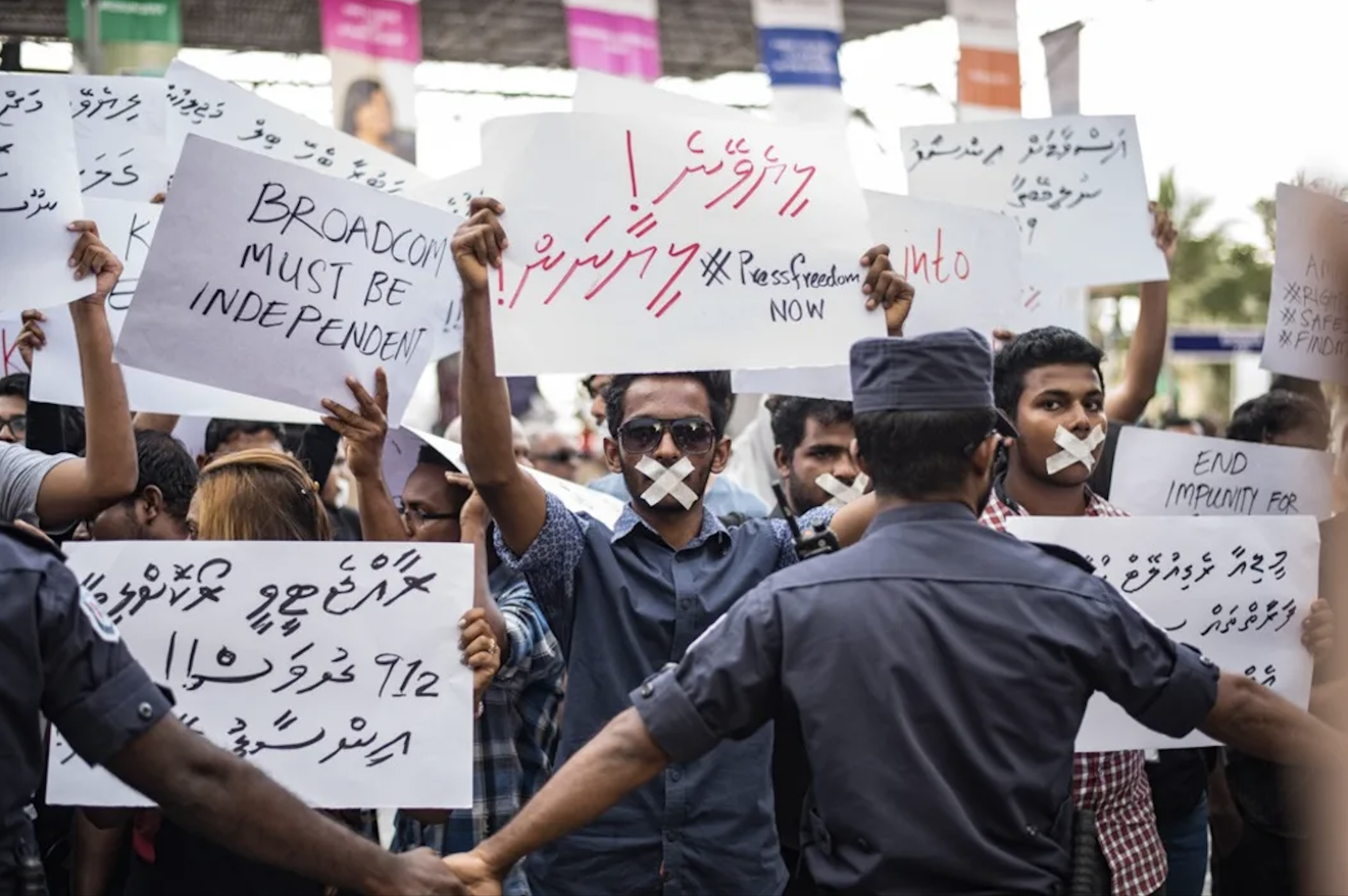Malé, Maldives – International press freedom and human rights groups are sounding alarms after a vast majority of the Parliament of Maldives voted to pass the new “Evidence Bill” forcing journalists to disclose their sources.
Human Rights experts describe the passing of this bill as “a dark day for the Maldives” during which the “Maldivian authorities paved way for the erosion of the right to freedom of expression in the country.”
Courts may compel journalists or media organizations to release the source’s identity in such cases where, revealing the identity of the source causes no negative impact or minimal negative impact to the source and others; or causes minimal damage to the media’s ability to find sources for factual information.
Article 136(b), Evidence Bill
Reporters without borders stated that the parliament is “ignoring important provisions in the examined Evidence Bill” and called to amend the bill defining the circumstances for “national security” since national security and terrorism are used as exceptions to source confidentiality granted by the Maldives Constitution.
Amnesty International’s South Asia Campaigner Saad Hammadi also honed in on the “national security” usage stating that the Maldivian authorities must adhere to international human rights law and standards to ensure the protection of sources of information in the Evidence Bill.
“National security” is used as a vague pretext by rerpessive authorities against individuals to strip off their human rights.
Saad Hammadi, South Asia Campaigner, Amnesty International
Transparency Maldives also noted that the press pays key role in defending democracy and urged to amend the bill to prevent press abuse.
The International Federation of Journalists urged the parliament to delay the bill which “puts press freedom in jeopardy.”
The Evidence Bill was passed with 50 votes despite protests by the media outside the parliament house. Speaking to journalists, Speaker Nasheed stated that there is no solution to the issue and accused journalists of not doing enough to prevent the bill from passing.
The bill was proposed by Thinadhoo MP Abdul Mughunee on behalf of the government on 30 August 2021.
Maldives Media Council (MMC) and Maldives Journalist Association (MJA) released statements calling to withdraw the provision to disclose sources on 22 September 2021 and 28 September 2021, respectively upon the revelation of the contents of the bill at the debate stage.
MMC states that article 136(b) of the Evidence Bill impedes press freedom provided in Article 28 of the Maldives Consitution.
MJA released a joint statement with the International Federation of Journalists (IFJ), the Maldives Editors Guild, Transparency Maldives and Amnesty International stressing that the bill will lead to a significant reversal of press freedom in the Maldives and carries the risk of generating a wider effect of fear and self-censorship.
On the same day, the Attorney General’s Office and Speaker Nasheed stated that the “concerns expressed by media freedom groups” were noted and the bill will be amended.
While MJA was brought in during the committee stage on 15 June 2022, the actual bill was not shared according to MJA’s steering committee member Mohamed Junaid. While MJA and MMC both requested to remove the provision, extreme exceptions were discussed. The parliament provided a draft to the media rights organization on 23 June 2022 after which MJA provided an extensive recommendations report on 29 June 2022. The parliament passed the bill on 30 June 2022 despite protests to delay and amend the bill further.





